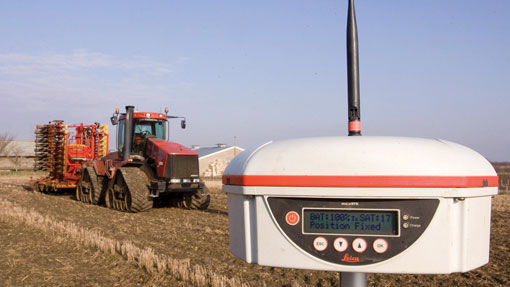New efficiency grants on offer to farm businesses

A new round of the Farming and Forestry Improvement Scheme (FFIS) offers grants of £2,500 to £35,000 to make farming businesses more efficient.
About £10m is available in this third round of the scheme, which opens on 4 February and runs until 4 April 2014.
Five areas that attract grants
- Nutrient management
- Energy efficiency
- Water management
- Animal health and welfare
- Forestry
The FFIS is part of the Rural Development Programme for England (RDPE) and will focus on five areas to help improve profits and make businesses more resilient at the same time as reducing the impact of farming on the environment:
Precision guidance systems accounted for the bulk of applications made in the first two rounds of these grants according to Brown & Co.
“Farmers, landowners and contractors may all be eligible,” said Charlie Mack, agricutural business consultant with Brown & Co.
“The grants are for capital items and are paid at a rate of up to 40% in lowland areas and up to 50% in upland areas.
Grants are run on a competitive basis so applicants making the stronger cases are likely to improve their chances of securing funds.
“Adding satellite guidance adds many benefits to a farming system, such as more accurate tramlining, less wear and tear on machinery, less overworking of soils and improved speed of operation,” said Mr Mack.
“On top of this it can significantly reduce bills for expensive inputs such as seed, fertilisers, sprays and fuel while benefitting the environment.”
(More: Farm diversification proves its worth)
William Barber of Newcome-Baker Farms, near Hunstanton, Norfolk, applied in spring 2012 for a retro-fit satellite steering system and an RTK mast to be shared with a neighbour.
He received the full application grant for both mast and system, which together cost about £25,000. “As well as the obvious – less fuel, time and wear and tear – we have gone onto a variable rate spreading system for P, K and Mg fertiliser (PK and Mg) which allows us to use these nutrients in a ‘smarter’ fashion.
“The system also means the men are less tired at the end of a long day as they don’t have to concentrate so long especially on jobs like sugar beet drilling. That brings safety benefits, too.”
Grants are paid in arrears so applicants need to be able to fund the whole project until the grant is paid.
What qualifies for an FFIS grant?
- Energy efficiency: equipment which reduces or recovers energy on farm, for example heat exchangers, solar screens and voltage optimisers, automatic variable speed controllers for water and vacuum pumps, thermal screens
- Nutrient management: improvements in the use of farm manures and slurries to improve soil quality and reduce reliance on artificial fertilisers – eligible items include slurry injectors, mechanical slurry separation, roofs for slurry and silage stores, farm manure analysis equipment, soil mapping and analysis software, GPS for tractors applying nutrients, fertilisers or manures, GPS base stations
- Water resource management: rainwater harvesting, recycling and reuse systems to reduce reliance on mains water – eligible items include water storage, filtering systems to intercept and divide water to aid rainwater harvesting and recycling
- Animal health and welfare: projects which bring about significant improvements in farm animal health and welfare – mobile handling systems, weighing facilities, EID equipment, slatted floors for indoor lambing, upgrade cattle crushes, equipment to assist in the control of TB, concrete grooving, health and management software
- Forestry: projects which improve the economic value of forests through the efficiencies of improved processing and adding value – eligible items include timber processors, forwarders and tractor-mounted forestry grabs.
A very wide range of equipment is eligible – the examples below are just a small selection:
For more information on the FFIS go to the RDPE Network webisite.
